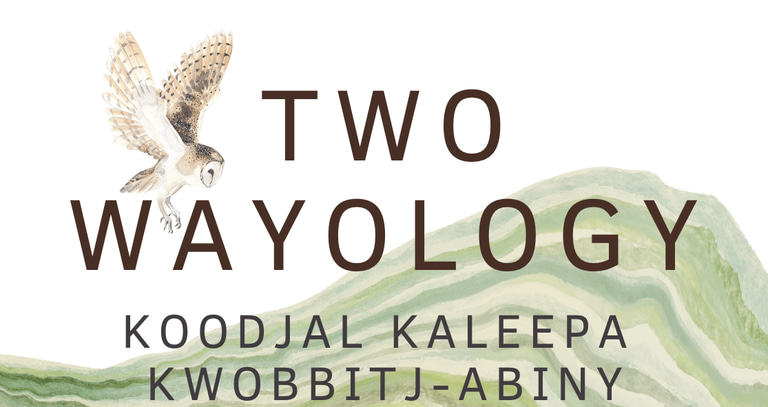Frequently Asked Questions
What is Two Wayology?
Two Wayology is an Aboriginal-owned and ran cultural anthropology consulting business based in Perth, Western Australia.
"Two-way" science often refers to initiatives that attempt to bring Indigenous and Western sciences together. Sometimes these initiatives don't end up honouring Indigenous knowledge systems as best as they could.
Instead, Two Wayology is grounded in Aboriginal knowledge systems while adapting Western social science methods that will work locally. Working across these two different systems requires significant training and deep knowledge of both.
What is an Aboriginal anthropologist? Are you Aboriginal?
An Aboriginal anthropologist is simply someone who is Australian Aboriginal and also qualified as an anthropologist. Cultural anthropologists work with and try to understand cultural phenomena.
I am Aboriginal through my maternal side. I come from the Kaniyang and Wilman clans in Noongar Nation through the Smith and Eades families. Although there are not many Aboriginal anthropologists, there are more of us qualifying professionally in recent years.
What does it take to become an anthropologist in Australia?
Unfortunately there are very few guidelines around professional anthropologists in Australia. While many professionals and academics do their best to grow the discipline and work ethically, this lack of guidelines has also lead to people who are poorly qualified in anthropology and data protection working within Aboriginal communities. Our communities have suffered because of this.
Generally in Western Australia, an anthropologist must have BA with Honours in Anthropology. I have both a BA and Honours in anthropology and continue to grow my knowledge and skills through further professional development and training. I also have a BA in archaeology and received an HD on my interdisciplinary Honours on ground stone tools, which involved anthropology, archaeology, history, and a little bit of geology.
What actually is ethnography?
Ethnography is much more than just jotting down conversations with a pen and paper. It's a long-term endeavour to understand a community and/or cultural phenomena through discussion, hands-on experiencing and reflecting. It requires deep engagement with community members and activities through participant observation, field notes, and interviewing.
Anthropologists must be aware of and manage their own positionalities and biases during fieldwork. Through training in cultural anthropology, we are able to approach difficult topics with sensitivity and empathy. While traditional ethnographies take years, rich insights into particular cultural phenomena and communities can still be obtained with the right strategy in a matter of months.
What's the difference between an ethnographer and an anthropologist?
An ethnographer is someone who may have taken a short training course in the methods of ethnography, but may not be formally qualified as an anthropologist. A well-qualified anthropologist can bring an array of methods and ways of working to the table for your project beyond traditional ethnography.
Some anthropologists can even bring other fields of knowledge to projects. I received most of my anthropology training at an Ivy League university (UPenn), where I was taught under the four subfield model of anthropology. This means that I received training in cultural anthropology, archaeology, sociolinguistics, and biological anthropology. While well-rounded, I specialise in cultural anthropology and archaeology.
I don't know what type of service we need. Where do I start?
Just send me an email to twowayology@gmail.com and we can begin chatting about what your needs are and whether the type of work I do could be a good fit for you. If not, I'll have a good think and do my best to refer you on to someone else.
